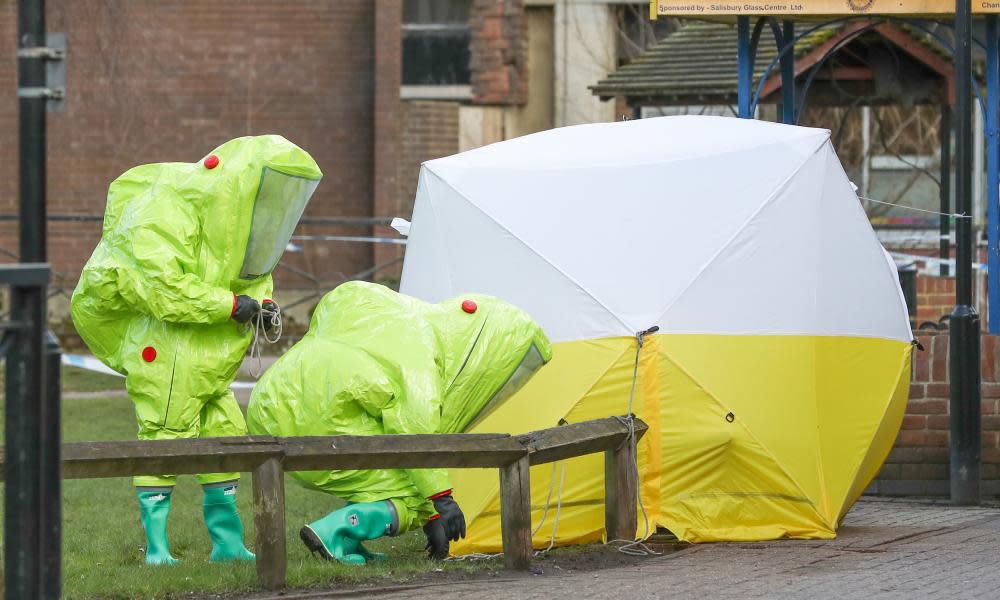Delaying UK novichok poisonings inquiry ‘could put more lives at risk’

The family of a woman killed in the Wiltshire novichok poisonings has warned that delaying the start of a full judge-led investigation into her death could put more lives at risk and is calling on the home secretary, Priti Patel, to speed up the process.
Relatives of Dawn Sturgess and her former partner Charlie Rowley are pressing for a public inquiry into her death in July 2018 but are increasingly concerned the full hearing may not begin until 2023.
At a preliminary hearing in the high court in London on Wednesday, the family’s lawyer, Adam Straw QC, said their “overriding concern” was to find out the truth and added that no family should wait more than five years to find out the circumstances of a loved one’s death.
He said the family believed there was a “wider public interest” in investigating the circumstances, especially following a claim this week by the senior national coordinator for counter-terrorism policing, Dean Haydon, that thousands of people could have been killed in the poisonings, which the UK government blames on the Russian state.
Straw said it was of “great importance” that any recommendations to prevent another attack – or on the response to it – were made swiftly, and added: “The family call on the home secretary not to neglect the protection of the public.”
The former Russian spy Sergei Skripal was the target of a novichok attack in Salisbury in March 2018. He, his daughter, Yulia, and a police officer, DS Nick Bailey, were poisoned but survived.
In June 2018, Sturgess, a 44-year-old mother of three, and her partner, Charlie Rowley, were poisoned after he found a fake perfume bottle containing novichok. Rowley recovered but Sturgess died on 8 July. One of the mysteries, which it is hoped an inquiry might uncover, is the gap between the attack on the Skripals and the poisoning of Sturgess.
A former high court judge, Heather Hallett, is in charge of the inquest process but on Wednesday said she too wanted the home secretary to “convert” it into a public inquiry, which would be able to consider sensitive information in secret and enable her to consider the role played by the Russian state. She is keen for the full hearing to begin by the end of next year if possible.
Counsel to the inquest, Andrew O’Connor QC, said it was “regrettable” that Patel had not already indicated whether she would agree to a public inquiry. “It is a matter of considerable regret that the secretary of state has not engaged more constructively,” he said.
O’Connor said it appeared the Home Office had decided it would have been “too burdensome” for Patel to have read “overarching reports” on the case and consulted cabinet colleagues.
Cathryn McGahey QC, counsel for the government, said Patel would aim to make a decision on a public inquiry by Christmas and conceded that starting a hearing at the end of 2022 was “possibly ambitious”.
On Tuesday, the Metropolitan police named Denis Sergeev, who allegedly used the alias Sergey Fedotov while in the UK, as the third Russian spy to face charges over the poisonings. Hallett said she planned to look at his alleged role as part of her investigation.

 Yahoo News
Yahoo News 
